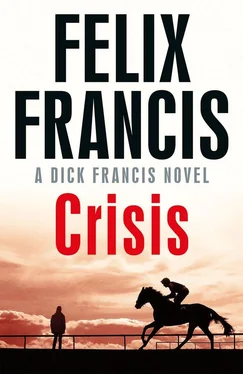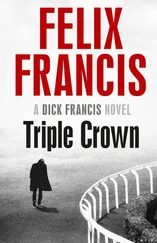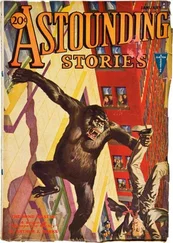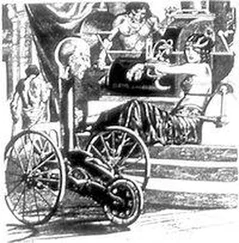The Oxford English Dictionary defines a crisis as:
‘A time of intense difficulty or danger’
For my granddaughter
Sophie Elizabeth Francis
Born June 2018.
With my grateful thanks to:
Merrick Francis, Chairman, Lambourn Trainers’
Association; Matt Bosworth, solicitor and crisis
manager; and to the trainers and people of
Newmarket who gave me huge help.
And also to my wife, Debbie, with love.
At the ‘Guineas Ball’ in Newmarket in April 2018, an auction lot was sold to have the successful bidder included as a character in this book. The funds raised were for the Injured Jockeys Fund, in particular for the Peter O’Sullevan House rehabilitation centre to be constructed at the British Racing School in Newmarket.
Mrs Michelle Morris was the successful bidder and hence she and her husband Mike exist as themselves within these pages.
All other characters are fictitious.
May 2018
According to my business card I was one Harrison Foster, Legal Consultant, but I was known universally as Harry and my speciality was crisis management.
And today’s crisis involved a murder — not that anyone knew it at the time.
‘Newmarket!’ I said. ‘But I know nothing about horse racing. I hate it and don’t even enter the office sweep on the National.’
‘No matter,’ ASW said. ‘You know about business and you’re needed.’
ASW was Anthony Simpson-White, founder, chairman, chief executive, owner and driving force behind the Simpson White Consultancy Ltd — my Boss with a capital B — and he was standing in the doorway close to my desk.
‘Can’t one of the others go?’ I asked. ‘Rufus loves the horses. He spends most of his salary at the bookies.’
ASW shook his head. ‘Rufus is stuck in Italy with the wine people. You’re my best available man.’
I looked around at the other desks in what was called the Operatives’ Room. Each of them was unoccupied.
Even on a Monday morning, I was his only available man.
‘And, anyway,’ he said, ‘the client has asked for you specifically.’
‘Oh,’ I said, somewhat surprised. ‘Who is the client?’
‘It will all be in the brief. I’ll send it to you by email while you’re on your way. Take a fast train from King’s Cross to Cambridge.’
‘Not Newmarket?’ I asked.
‘Cambridge is better. You’d have to change there anyway to get a local service. I’ll get Georgina to arrange a car and driver to meet you.’
Georgina was his PA: fifty-four years old, divorced with two grown-up sons, she was always smart, bright and happy. She was also ASW’s mistress, not that either of them would ever admit to it. But we operatives knew. Of course we knew. As the Boss was always telling us: ‘I expect my operatives to know everything about everyone.’
‘Whose stables in Newmarket?’ I said.
‘That’ll be in the brief, too. I’ll get Georgina to book you a room. Now get going, Harry, there’s a good chap.’
In spite of his genial tone, it was an order not a request.
I immediately closed the laptop on my desk, stood up, put on my jacket and collected my already-packed suitcase from the cupboard in the corner where it sat, permanently on standby, primed for an instant departure to anywhere in the world, hot or cold.
How to pack was one of the first things taught to new operatives at Simpson White.
The main rule was that the suitcase had to be small enough to fit into the overhead lockers on an airliner — standing waiting at baggage reclaim was considered to be time that could be spent more productively with the client.
Two clean shirts, a change of underwear, washbag, hairbrush, razor, phone and laptop chargers were all essentials; chinos, trainers and a polo shirt were optional, while shorts and flip-flops were frowned upon. Operatives were expected to always wear a suit and tie to the office so as to reduce the need to pack them.
My case also contained a small first-aid kit — scissors removed — a pair of swimming trunks and a small rolled-up Union Jack.
One never knew when that might be useful.
Anything else that an operative might need on assignment was expected to be bought ‘in theatre’, as ASW called it, and he provided us with a company credit card for the purpose, although any purchases were tightly scrutinised to ensure that they were absolutely necessary.
Not that Simpson White was exceptionally mean towards its employees. In fact, quite the reverse. Operatives travelled business class on long-haul flights so as to be rested and ready for work immediately on arrival, and provision of a comfortable car with a driver was the norm, as were four- and five-star hotels.
‘I need my staff fresh,’ ASW would say, and he would charge his clients accordingly.
Retired colonel, Anthony Simpson-White had established Simpson White Consultancy Ltd in the mid-1990s, partly with his gratuity paid on completion of eighteen years’ exemplary service in the British Army. But ASW had not been a fighting soldier. He was a lawyer.
He had served as a senior officer in the advisory branch of the Army Legal Corps, dispensing advice on military and international law to prime ministers and the High Command, including during British wars in the South Atlantic, Persian Gulf and Bosnia.
‘I spent most of my time telling the bigwigs what they really didn’t want to hear,’ he’d once said by explanation of why he had finally resigned his commission even when tipped to be a future director general of Army Legal Services. ‘Not that things have changed much since,’ he’d added with a laugh, ‘except the bigwigs now pay me more for the privilege.’
He’d started as a one-man operation, giving legal advice and opinions to companies in financial or operational difficulty, using the same authoritative and blunt manner that he’d employed at the Ministry of Defence. The company directors might also have not liked hearing what he had to say but he had an uncanny knack of cutting through the chaff to the meat of a problem before offering a lifeline, palatable or otherwise. It was then up to the company to decide whether to accept or reject his recommendations — to survive or go under.
And ASW was never one to stand idly by and say nothing when he believed that his intervention would help. One of his favourite sayings was: If you live without making a difference, what difference does it make that you have lived.
Over the years his reputation had grown and so had his business, so much so that he now had ten operatives working under his watchful eye, and there was talk of recruiting numbers eleven and twelve.
Most of us were lawyers but there was also an ex-special-forces sergeant plus two financial whizz-kids enticed from the City not so much by a huge pay cheque but by the promise of a more varied and exciting life.
And varied and exciting it had proved to be.
I was operative number 7 — 007, I liked to think — and I had been with the company for almost seven years having become bored with conveyancing houses, drawing up wills and submitting divorce petitions — the staple diet of a local high-street solicitor in rural Devon.
One particular wet and tedious Wednesday afternoon in Totnes, I had spotted a small, understated advert in the corner of the jobs section of the Law Society Gazette .
‘Vis mutare aliquid magis excitando tuum?’ was all it said, with a London telephone number alongside.
Vis mutare aliquid magis excitando tuum?
Читать дальше












